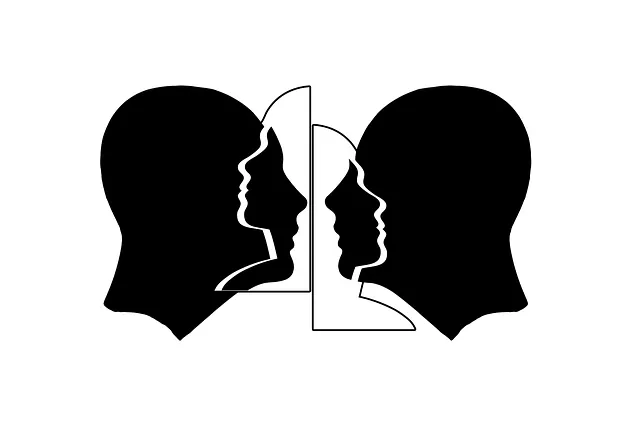Español
Hola a Tod@s, este artículo lo escribo a propósito de la respuesta que le ha enviado la administración de la comunidad @beentrepreneur al excelente artículo de @royalevidence, el cual, si no has podido leer, te invito a leerlo aquí
@beentrepreneur le preguntó a @royalevidence por algunas ideas en la parte de negociación. Yo no soy una autoridad en el tema, pero creo que pudiera aportar algo:
Una negociación no es una pelea.
Lo primero que un negociador tiene que entender es que una negociación no es una situación donde una parte somete su voluntad sobre la otra. Esto es básico. Una negociación se lleva a cabo con la finalidad de que las partes salgan todas beneficiadas.
Cuando vas a una tienda a comprar un producto, si tu decides comprarlo al precio marcado, allí hay una negociación rápida. El vendedor puso un precio y tu accediste. También pudiste haber pedido un descuento, y haberlo comprado a otro precio con el que ambas partes se sienten cómodos.
La otra parte no es tu oponente, es la otra parte en un acuerdo al que tú quieres llegar.
Entender la otra parte
Si tratas de comprender que es lo que quiere la otra parte, si puedes ponerte en su lugar, si eres empático, entonces verás cual es su problema y podrás conseguir una solución que esté alineada a los intereses de ambos.
¿Alguna vez has tratado de hacer que un niño coma cunado realmente no quiere? Aquellos padres sabrás que la mejor forma es negociar con el niño, pensar en lo que quiere, ese juguete, esa hora de diversión, y usas eso como moneda de cambio. También si sabes que es que no le gusta el sabor, cambiándolo un poco puedas lograr tu cometido…
Todos deben ceder
En una negociación todo el mundo cede en pro del bien común. Si vas a comprar algo a una tienda y lo compras al precio del mostrador, tu cediste tu dinero y el vendedor cedió su producto y los 2 quedaron contentos. Hay negociaciones más difíciles donde la gente quiere más, pero en cada caso, algo se debe estar dispuesto a sacrificar por obtener un bien superior. Si usted va a una negociación pensando que se va a imponer sobre el otro, lo más probable, a menos que el otro esté en franca desventaja, es que usted no logre su cometido.
Volviendo al niño que no quiere comer, si tu cambias el sabor de la comida, el puede comérsela. Ambos ceden. O puedes acordar con él en que se coma la mayor parte, pero no todo, ambos habrán cedido y habrán llegado a un punto de encuentro.
Los comodines
Es bueno siempre ir a una negoción con un set de comodines o cosas intercambiables. Esas son cosas que ya tú de antemano sabes que puedes sacrificar y que le crearán valor a tu contraparte. De esta forma, si tu contraparte sigue insatisfecha, puedes desprenderte de algún comodín para lograr tu cometido. Luego si tu quieres algo adicional, lo puedes cambiar por algún otro comodín.
En el caso del niño, si sabes de antemano que no le gusta, puedes servirle mucho y al momento de la queja negocias que coma si le retiras una porción, ya llevabas tu comodín. O pudiste llevarte una golosina y acordar con él que si se come todo también tendrá la golosina (este comodín es infalible...).
Cero engaños
Hay gente que juega a engatusar al otro. Y hay personas muy buenas en eso. Incluso puede lograr su cometido. El problema de eso es que si pretendes seguir haciendo la actividad que te llevó a la negociación en primer lugar, no vas a poder hacerlo más. Si tu contraparte se entera de que lo estás engañando durante la negociación, puedes dar esa negociación por perdida. Si lo logras hacer, luego tu contraparte se enterará tarde o temprano y ejercerá algún tipo de represalia, incluyendo el daño a tu reputación. Y para muchas personas la reputación es lo único que tienen.
Hace muy pocos días estaba a punto de cerrar una negociación con un proveedor de un producto nuevo. Debido a que el producto era nuevo había que generar esa confianza en el producto y sobre eso estábamos negociando. Durante la negociación me di cuenta de que el proveedor se contradijo, estaba mintiendo. Ya no pude negociar más, y a pesar de que quería el producto, ya no sabía si el proveedor me estaba engañando con respeto a todo. Se perdieron todos esos días de negociación. Pero más vale que digan aquí corrió que aquí murió…
Comienza alto
Siempre es bueno comenzar alto (si vas a vender, si vas a comprar comienza bajo) la puja. Pero no tan alto… si comenzamos muy alto nuestra contraparte puede pensar que no va a poder lograr una condición favorable y se puede retirar. Si comienzas alto (dentro de lo razonable), lo peor que puede pasar es que tengas que ir bajando un poco durante la negociación, pero puede ser que tu contraparte acuerde con ese precio de entrada y la negociación salga mejor de lo que pensabas.
Una vez estaba asesorando a un amigo en la venta de una propiedad, le estaba costando mucho venderla, hasta que llegó un interesado. La persona tenía todas las características de tener poder de compra, así que le aconsejé a mi amigo que comenzara bastante alto. Nuestra sorpresa fue que la otra parte aceptó al instante, resultado: los 3 quedamos muy contentos jejeje…
Establece un límite
Antes de ir a la negociación debes establecer un límite calculado de hasta donde puedes negociar, un límite más allá del cual sabes que vas a estar perdiendo. Ese límite debes establecerlo con la cabeza fría, con pensamientos lógicos. Si llegas a la negociación sin haber establecido ese límite, puede ser que llegues a una negociación en la que hayas perdido más de lo que te podías permitir.
Bueno, creo que eso es todo lo que puede decir de esto, espero te sea de utilidad y, por supuesto, si tienes alguna duda o algo que agregar, no olvides colocarlo en los comentarios.
Saludos a tod@s!
Haz click para llegar a mi perfil...!
English
Hello to Everybody, I write this article about the response sent by the administration of the community @beentrepreneur to the excellent article of @royalevidence, which, if you have not been able to read, I invite you to read it [here] (@royalevidence/negotiation-skills-as-a-vital-key-for-an-entrepreneur)
@beentrepreneur asked @royalevidence for some ideas on the negotiation side. I am not an authority on the subject, but I think I could contribute something:
A negotiation is not a fight.
The first thing a negotiator must understand is that a negotiation is not a situation where one party submits its will over the other. This is basic. A negotiation is carried out for the parties to benefit.
When you go to a store to buy a product, if you decide to buy it at the marked price, there is a quick negotiation. The seller put a price and you agreed. You could also have asked for a discount and bought it at another price that both parties are comfortable with.
The other party is not your opponent, it is the other party in an agreement that you want to reach.
Understanding the other party
If you try to understand what the other party wants, if you can put yourself in their shoes, if you are empathetic, then you will see what their problem is and you can get a solution that is aligned to the interests of both.
Have you ever tried to make a child eat when they really don't want to? Those parents will know that the best way is to negotiate with the child, think about what he wants, that toy, that hour of fun, and you use that as a bargaining chip. Also, if you know that it is that he does not like the taste, changing the taste a little could makes you to achieve your mission ...
Everyone must give in
In a negotiation, everyone gives in for the common good. If you are going to buy something from a store and buy it at the price of the counter, you gave up your money and the seller gave his product and the 2 of you were happy. There are more difficult negotiations where people want more, but in each case, something must be willing to sacrifice for a higher good. If you go into a negotiation thinking that you are going to impose yourself on the other, the most likely thing, unless the other is at a clear disadvantage, is that you will not achieve your goal.
Going back to the child who doesn't want to eat, if you change the taste of the food, he can eat it. Both give in. Or you can agree with him to eat most, but not all, both will have yielded and will have reached a middle point.
Wild cards
It is always good to go to a negotiation with a set of jokers or interchangeable things. Those are things that you already know in advance that you can sacrifice and that will create value for your counterpart. In this way, if your counterpart is still dissatisfied, you can get rid of some wild card to achieve your goal. Then if you want something extra, you can change it for some other wildcard.
In the case of the child, if you know in advance that he does not like it, you can serve him a lot and at the time of the complaint you negotiate that he eats if you withdraw a portion, you already took your joker. Or you could take a treat and agree with him that if he eats everything, he will also have the treat (this wild card is infallible ...).
Zero cheating
There are people who play at cajoling the other. And there are very good people at that. He can even achieve its mission. The problem with that is that if you intend to continue doing the activity that led you to the negotiation in the first place, you will not be able to do it anymore. If your counterparty finds out that you are cheating on them during the negotiation, you can give that negotiation for lost. If you manage to do it, then your counterpart will find it out sooner or later and exercise some kind of retaliation, including damage to your reputation. And for many people, reputation is all they have.
A few days ago, I was about to close a negotiation with a supplier of a new product. Because the product was new we had to generate that trust in the product and on that we were negotiating. During the negotiation I realized that the supplier contradicted himself, he was lying. I couldn't negotiate anymore, and even though I wanted the product, I no longer knew if the supplier was cheating on me with respect to everything. All those days of negotiation were lost. But they better say here he ran that here he died (referring to me pf course)...
Start high
It's always good to start high (if you're going to sell, if you're going to buy start low) the bid. But not so high... If we start very high our counterpart may think that he will not be able to achieve a favorable condition and can retire. If you start high (within a reasonable range), the worst thing that can happen is that you have to go down a little during the negotiation, but it may be that your counterpart agrees with that entry price and the negotiation goes better than you thought.
Once I was advising a friend on the sale of a property, he was having a hard time selling it, until an interested party arrived. The person had all the characteristics of having purchasing power, so I advised my friend to start pretty high. Our surprise was that the other party accepted instantly, result: the 3 of us were very happy lol...
Set a limit
Before you go into trading you must set a calculated limit of how far you can trade, a limit beyond which you know you will be losing. That limit must be established with a cool head, with logical thoughts. If you come into negotiation without having established that limit, you may arrive at a negotiation in which you have lost more than you could afford.
Well, I think that's all I can say about this, I hope you find it useful and, of course, if you have any questions or something to add, don't forget to place it in the comments.
Greetings to everyvody!








